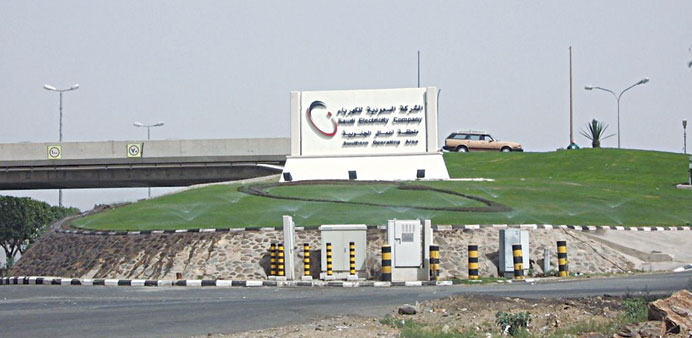Saudi Electricity’s $1bn sukuk due April 2043 is the best returning corporate Islamic bond from the GCC this year, according to data compiled by Bloomberg.
Bloomberg/Dubai
Saudi Electricity Co’s planned sukuk sale is poised to jump-start dollar-denominated Islamic bond issuance in the Gulf Co-operation Council countries after the slowest first quarter in five years.
The utility said on March 24 it hired banks for a proposed sukuk, which would be the second dollar issuance from the six GCC nations in 2014 after Dubai Investments’ $300mn sale in January. There were four sales worth a record $3.6bn in the first quarter last year, according to data compiled by Bloomberg. Saudi Electricity could be joined selling sukuk by Damac Real Estate Development Ltd, which received a preliminary rating from Standard & Poor’s on Tuesday.
“If Saudi Electricity comes out with a chunky deal this could change what we’re looking at,” Chavan Bhogaita, head of the markets strategy group at National Bank of Abu Dhabi, said by phone March 24. “The need to borrow has not plummeted. There are a few names in the pipeline, but they have not pulled the trigger yet.”
Borrowers have been reluctant to sell debt after the US Federal Reserve’s plan to cut bond-buying pushed up Treasury yields last year, and as investors fled turmoil in emerging markets. HSBC Holdings and Fitch Ratings predicted sales of Islamic bonds globally may reach a record in 2014, helped by new issuers and government spending.
Saudi Electricity’s $1bn sukuk due April 2043 is the best returning corporate Islamic bond from the GCC this year, according to data compiled by Bloomberg. The notes handed investors 4.9% compared with an average of 2.1% for all corporate sukuk from the region.
“Saudi Electricity will give some positive sentiment and encourage others to return to the market,” Samer Mardini, a vice president of fixed income at SJS Markets Ltd in Dubai, said by phone on Tuesday. “In the past year, we haven’t seen many investment grade sales. This will be a great issue, and will support the market.”
The Saudi state-owned utility plans this year to spend 30bn riyals ($8bn) to increase production capacity, chief executive officer Ziad al-Shiha said in February. The company last week received a 49.4bn-riyal interest-free loan from the government and raised 4.5bn riyals from a local sukuk sale in February.
Non-dollar sukuk in the GCC had a record start to the year, with about $6bn worth of local currency sales, according to data compiled by Bloomberg, compared with $1bn in the first quarter of 2013.
With uncertainties surrounding interest rates and emerging markets among other issues, borrowers are “finding it attractive to go local and get competitive rates,” Karim Nassif, a Dubai-based analyst with S&P, said in a telephone interview on Tuesday. The yield on 10-year Treasuries increased 127 basis points last year to 3.03% as the Fed announced it would reduce the $85bn a month stimulus measures. The average yield for Shariah-compliant debt in the Middle East has dropped 24 basis points this year to 4.4% on Monday, according to JPMorgan Chase & Co indexes.
Saudi Electricity said it is working with Deutsche Bank, HSBC and JPMorgan on the planned sukuk and on Tuesday started investor meetings in the US and Europe. The utility hasn’t disclosed the amount it seeks to raise.
S&P said it expects government spending in the region to help drive Islamic bond sales for the rest of the year, pushing deals up to the same levels as last year. There were more than $24bn of sukuk issued in the region last year, according to data compiled by Bloomberg.
“We expect there to be similar levels of conventional and Islamic issuance when we look at the whole year,” Nassif said, and because they need to reach a wide pool of investors “Issuers will still tap the market in dollars this year.”

